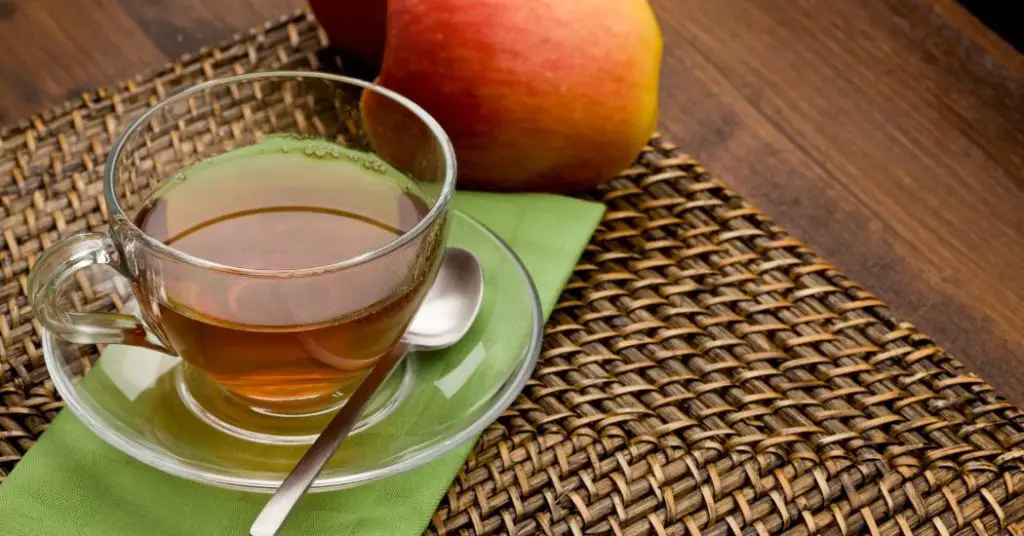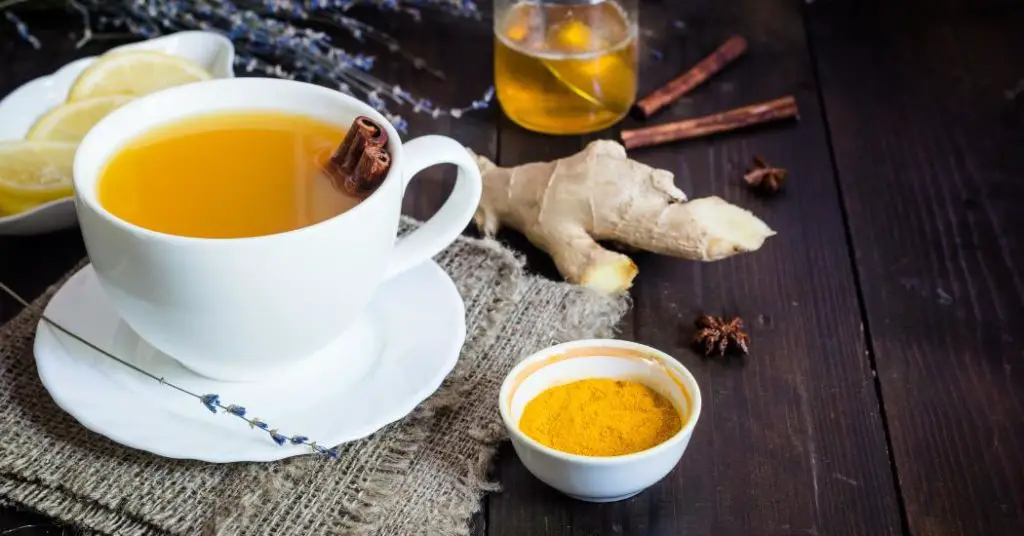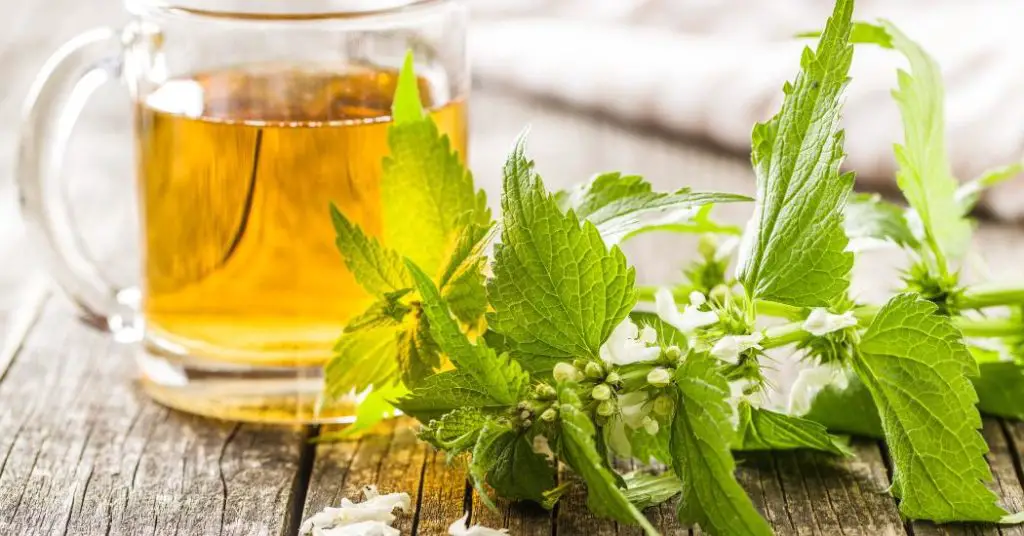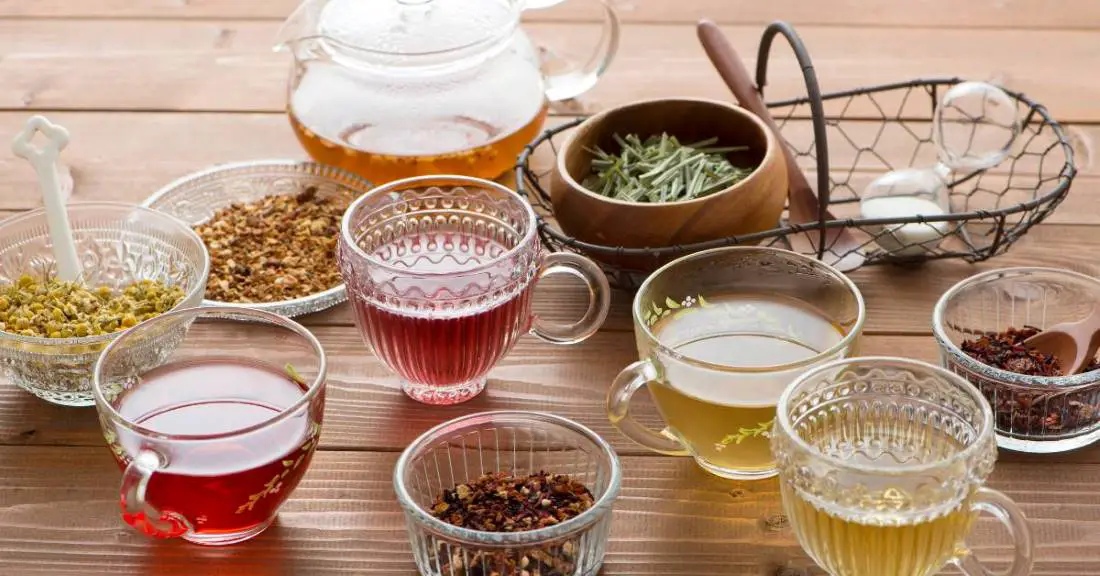When you have histamine intolerance and enjoy hot beverages, you might wonder whether there are low-histamine hot drinks you can enjoy without triggering histamine intolerance symptoms.
Coffee, tea, and hot chocolate are popular picks with the general population, but they can wreak havoc on your body if you’re unable to properly break down histamine.
Luckily, there are plenty of other options to choose from. So, what are some low-histamine hot drinks that you can enjoy guilt-free? Before we get to that, let’s take a closer look at the beverages you’ll want to steer clear of if you’re dealing with histamine intolerance:
- Coffee
- Black tea
- Green tea (safe for some people in limited amounts)
- Chai tea
- Hot chocolate
- Alcoholic beverages, such as mulled wine and cider
You can read more about histamine intolerance and coffee here. Now, let’s look at some safe, low-histamine beverages you can sip when you want a hot beverage. Fortunately, you have options!
Chamomile Tea
Herbal teas are a low-histamine alternative to traditional tea and coffee and many are naturally low in histamine. Have you enjoyed a cup of chamomile tea? It’s a beloved herbal tea known for its calming properties.
This delightful beverage is made from the dried flowers of the chamomile plant. The flowers are steeped in hot water to release the beneficial compounds that can help reduce inflammation and promote relaxation. (4)
Luckily, if you have histamine intolerance, chamomile tea is low in histamine and is generally well-tolerated. But as we all know, each body is unique, so it’s important to pay attention to your body’s signals and adjust your intake accordingly. After all, nothing beats a warm cup of chamomile tea to help unwind after a long day.
There are some caveats with drinking chamomile tea. It’s not uncommon to be allergic to this soothing herbal tea. If you’re allergic to ragweed, chrysanthemums, marigolds, or daisies, you may also have an allergic reaction to chamomile tea. (1)

Apple Tea
Apples are a low-histamine fruit, but did you know you can make tea from apples? To this, you steep sliced apples or chunks of apple in hot water. It’s delightfully sweet and tart, but it’s important to make it yourself using whole apples.
Commercial apple tea may contain herbs and spices that are high in histamine or histamine liberators, such as cinnamon. Always make apple tea from the freshest apples, as freshness counts for managing histamine intolerance symptoms.
Here’s a simple recipe for making apple tea at home:
Ingredients:
- 2 medium-sized apples
- 4 cups of water
- Honey (optional)
Instructions:
- Wash the apples and slice them into thin pieces, leaving the skin on.
- Add the sliced apples and water to a pot and bring it to a boil.
- Once the water has come to a boil, reduce the heat, and let the mixture simmer for about 20 minutes.
- Remove the pot from the heat and let it cool for a few minutes.
- Using a fine-mesh strainer, strain the liquid into a separate pot or pitcher, pressing down on the apple slices to extract as much flavor as possible.
- Serve the apple tea hot, and sweeten it with honey to taste, if desired.
Sipping on apple tea may be beneficial if you have histamine intolerance. Apples are rich in polyphenols that reduce inflammation. (2, 3)
Ginger Tea
Ginger is naturally low in histamine and has anti-inflammatory properties. Sipping a cup of ginger tea not only reduces inflammation, but it’s beneficial for digestion.
Try sipping some when you experience nausea. Whether you’re feeling queasy or want to give your gut some extra love, sipping on a warm cup of ginger tea can be a game-changer.
But the benefits of ginger tea don’t stop there. This versatile root has also been shown to help with bloating, cramping, and other digestive issues. Its natural anti-inflammatory properties can help calm an irritated stomach and promote healthy digestion.
Plus, ginger tea is easy to make and you can enjoy it hot or cold, making it a perfect addition to your daily routine.
To make ginger tea at home, simply peel and slice fresh ginger root, then steep it in boiling water for 10-15 minutes. You can also add a squeeze of lemon or a spoonful of honey for extra flavor and sweetness.
So the next time you need a little TLC, reach for some ginger tea and let its healing powers work their magic!
One precaution: Although ginger is low in histamine, some people add a squirt of lemon to ginger tea. Don’t do it. Citrus fruits can increase your body’s histamine burden.

Turmeric Tea
If you enjoy a hot beverage and have histamine intolerance, sipping turmeric tea is an excellent choice. The active ingredient in turmeric is curcumin (5), a compound that has natural anti-inflammatory properties.
Research suggests it may reduce the release of histamine from mast cells in response to allergies.
One study found that turmeric blocked the production of histamine by a strain of histamine-producing bacteria called Morganella Thangaradjou. Plus, it has anti-bacterial properties, helping stymy the growth and replication of some bacteria. (6)
Therefore, sipping turmeric tea may be beneficial and, if anything, help reduce your body’s histamine burden.
How to make turmeric tea:
Ingredients:
- 1 tsp ground turmeric
- 1 tsp grated fresh ginger
- 1 tbsp honey (or sweetener of choice)
- 2 cups of water
Instructions:
- In a small saucepan, bring the water to a boil.
- Add the turmeric and grated ginger to the water, then reduce the heat to low and let it simmer for about 10 minutes.
- Remove the pan from heat and let it cool for a few minutes.
- Stir in honey.
- Using a fine-mesh strainer, strain the tea into a mug or teapot.
- Serve and enjoy!

Nettle Leaf Tea
Nettle leaf tea is another low-histamine drink to enjoy. A study found that nettle leaf blocks some steps involved in producing allergy symptoms and has an anti-inflammatory effect on the body. (7)
So, it’s a beverage to enjoy during spring allergy season too. Experts point out that nettle tea may have natural antihistamine effects. Also, find out whether coconut water is low histamine.
Here’s a simple recipe for making a cup of hot nettle leaf tea at home.
Ingredients:
- 1 tablespoon of dried nettle leaves
- 1 cup of water
- Instructions:
- Boil one cup of water in a kettle or on the stove.
- Add the dried nettle leaves to a tea infuser or tea ball and place it in a mug.
- Pour the hot water over the infuser or tea ball, making sure to cover the leaves completely.
- Let the tea steep for 5-10 minutes, depending on how strong you like your tea.
- Remove the infuser or tea ball and discard the nettle leaves.
Enjoy your hot cup of nettle-leaf tea!
Nettle tea has a slightly earthy taste that some people find like green tea or spinach. If you prefer a sweeter tea, you can add a little bit of honey.
Conclusion
If you love warm beverages, there are low-histamine hot drinks you can enjoy without aggravating histamine intolerance symptoms. If you enjoy a little sweetener in these beverages, explore these low-histamine sweeteners. Also, keep tracking your symptoms by keeping a journal.
References:
- “Chamomile”. 2023. Www.Nccih.Nih.Gov. https://www.nccih.nih.gov/health/chamomile.
- “Eat these fruits for their anti-inflammatory benefits”. 2023. Www.Health.Harvard.Edu. https://www.health.harvard.edu/nutrition/eat-these-fruits-for-their-anti-inflammatory-benefits.
- Williamson, Gary. “The Role of Polyphenols in Modern Nutrition.” Nutrition Bulletin, vol. 42, no. 3, Aug. 2017, pp. 226–35, doi:10.1111/NBU.12278.
- Srivastava, Janmejai K. “Chamomile: A Herbal Medicine of the Past with a Bright Future (Review).” Molecular Medicine Reports, vol. 3, no. 6, Nov. 2010, pp. 895–901, doi:10.3892/MMR.2010.377.
- “Turmeric | NCCIH.” https://www.nccih.nih.gov/health/turmeric.
- Sahdeo Prasad. “Turmeric, the Golden Spice”. 2023. Www.Ncbi.Nlm.Nih.Gov. https://www.ncbi.nlm.nih.gov/books/NBK92752/.
- Roschek B Jr, Fink RC, McMichael M, Alberte RS. Nettle extract (Urtica dioica) affects key receptors and enzymes associated with allergic rhinitis. Phytother Res. 2009 Jul;23(7):920-6. doi: 10.1002/ptr.2763. PMID: 19140159.

